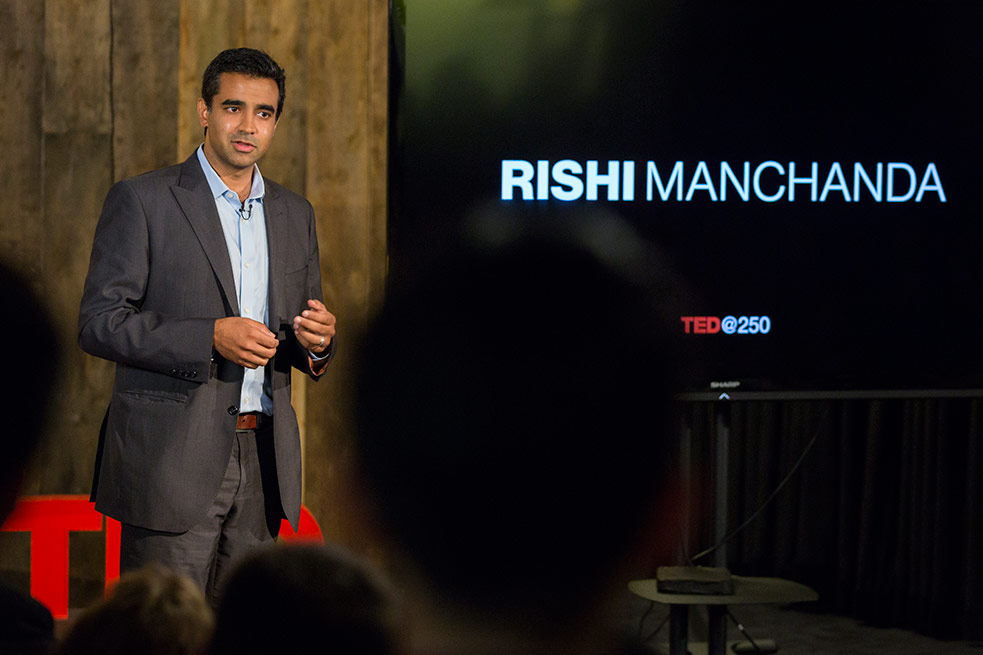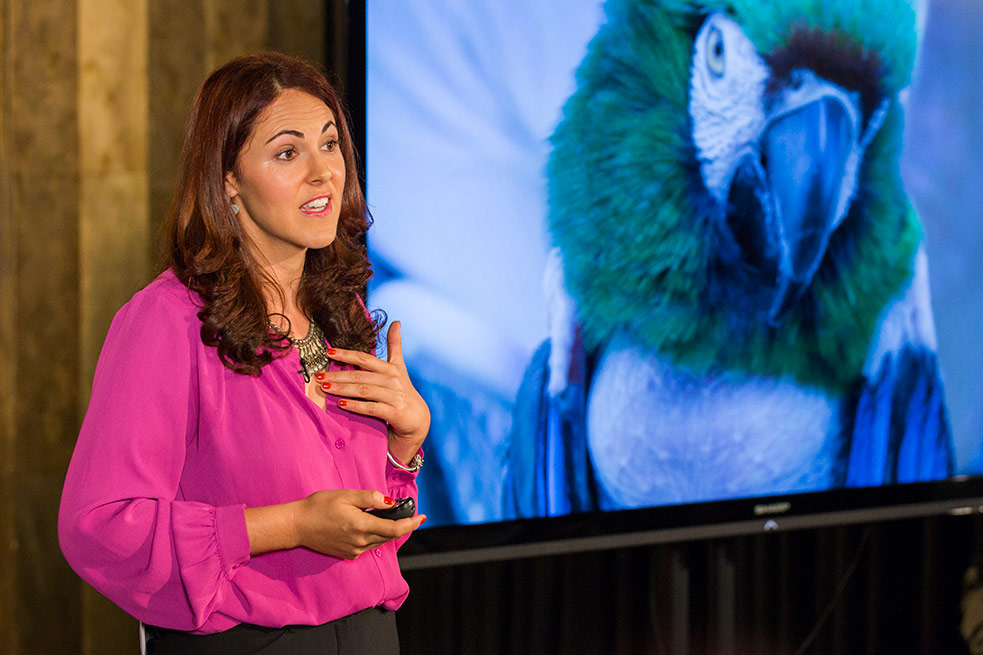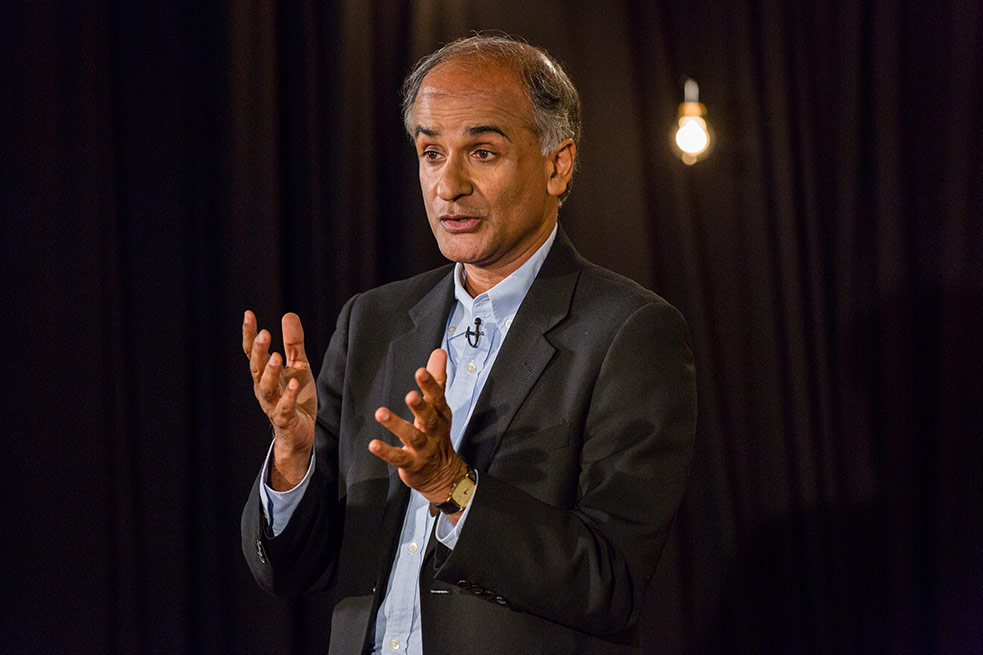
Rishi Manchanda shares an idea about healthcare from his TED Book, The Upstream Doctors. Photo: Ryan Lash
Last night, four authors stepped onto an Edison-bulb-lit stage in our New York office to share the bold ideas at the center of their books. “Tonight will bring to life the nonfiction section of the library,” promised the evening’s host, June Cohen, Executive Producer of TED Media. From a new vision for healthcare, to a peek inside the minds of mentally ill animals, to clarion call from a travel writer for us all to spend more time going nowhere, the night bounced through the Dewey Decimal System, offering inspiring new perspectives along the way.
The event began with a thought-provoking talk from a special guest (we can’t ruin the surprise, but look for this talk on TED.com on Tuesday, August 12). After that, physician Rishi Manchanda—author of the TED Book The Upstream Doctors—stepped up to share an idea for how make healthcare far more effective. For a decade, Manchanda has worked as a doctor in South Central Los Angeles, treating patients who live and work in harsh conditions, and he has come to realize that his job isn’t just about treating a patient’s symptoms but about getting to the root cause of what is making them ill—the factors upstream from the immediate problem. “Health begins not in the four walls of the doctor’s office, but where we live, work, eat, sleep and play,” says Manchanda, explaining that living and working conditions account for 60% of premature death. In a stirring talk, he called for doctors to look more upstream and to talk to patients about the realities of their lives, and for patients to be more proactive in asking medical professionals if factors at home or work might be affecting how they feel.

Can parrots get depressed? Yes, says TED Fellow Laurel Braitman, the author of the book Animal Madness. Photo: Ryan Lash
Next, singer/songwriter Tift Merritt showed off her unique Americana sound, playing two songs off her album Traveling Alone. And then it was time for science historian Laurel Braitman, a TED Fellow, to share the idea at the core of her recently released book Animal Madness. Braitman is intrigued by how mental illness manifests in animals, a fascination that began with her dog, Oliver, who has both obsessive-compulsive disorder and acute anxiety. “If animals can suffer from [mental illness] too, what does that mean for us?” she wonders. In a way, mental illness in animals can be viewed as a surplus or deficit of something healthy. Fear and anxiety, says Braitman, are helpful animal emotions when they are reactions to threats; even OCD is an exaggeration of a positive animal behavior, the desire to groom and stay clean. As she tells tales of cats with PTSD and a one-armed monkey who found solace in a friendship with a bunny, Braitman explains why she thinks that, by virtue of having emotions ourselves, we can, if not perfectly understand, at least empathize with what animals are feeling. “Even though you can’t know exactly what’s going on in mind of your pig, your pug or your partner, that shouldn’t bar you from having empathy,” she says.
Finally, Pico Iyer took the stage. This longtime travel writer has spent his life crisscrossing the globe — but he’s developed his ability to appreciate travel by going nowhere, taking time to sit quietly with himself and reflect. Iyer recalls a trip to North Korea more than two decades ago. “The trip lasted for a few days,” he says. “Sitting still with it allowed me to turn that into insights that lasted for 24 years.” In this lyrical talk, Iyer calls for each of us to find time to sit with ourselves — to find space away from work, friends, family — because, he says, only by stepping back from the busy screens of our lives can we start to see the big picture. “Sitting still is where we get what we most need in our accelerated lives,” he says.

Travel writer Pico Iyer gives an introduction to his upcoming TED Book, Going Nowhere. Photo: Ryan Lash
“The Nonfiction Issue” was part of TED@250, a series of salons held in our New York headquarters at 250 Hudson Street. Since our main conferences are only twice a year, TED@250 gives the opportunity for talks that rethink current headlines, or that offer the kind of personal stories that work better on the small scale. Stay tuned. Some of these talks will be coming to TED.com soon.
Comments (3)